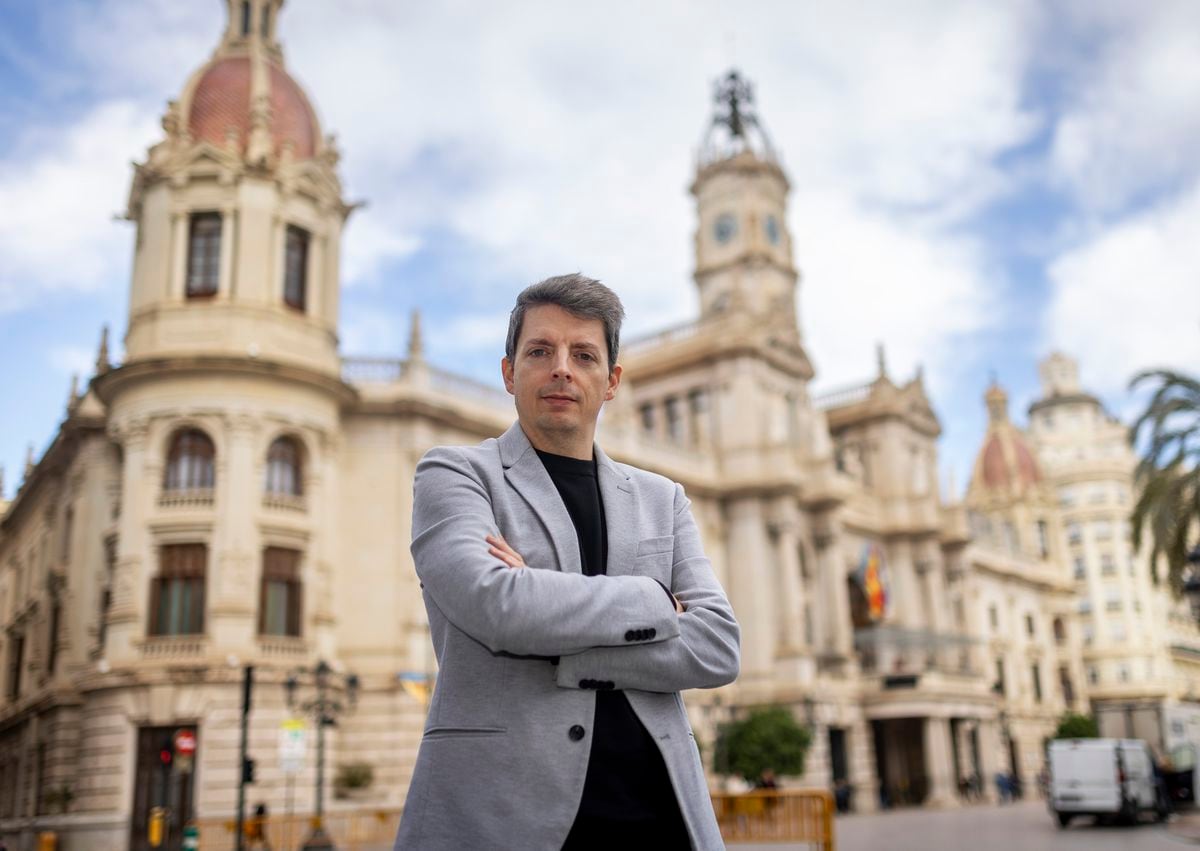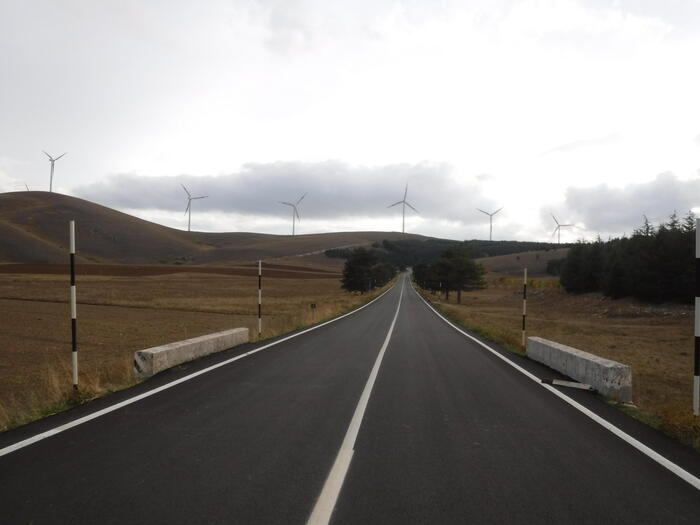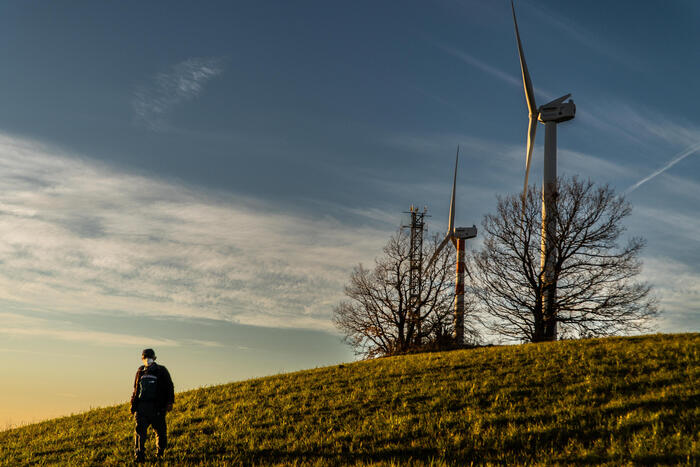All the experts consulted for this report agree: there are no precedents for a renewable explosion like the one expected in the next two years in Spain.
The reason?
The environmental approval of the autonomous communities and the Government to more than 1,400 wind projects and, above all, solar.
This new wave joins what has already been installed during the last two years, which have also been record-breaking for photovoltaics, the technology that is experiencing the sweetest moment.
This rapid and massive expansion is helping Spain to disengage from fossil fuels, the main drivers of climate change, and to obtain cheaper electricity.
But, at the same time, it is causing tensions derived from competition for land, landscape impacts and biodiversity,
Added to the climate fight is the obligation that the European Union has set itself to move away from Russian gas and oil after the invasion of Ukraine.
Brussels has led the way crystal clear: more renewables even faster and energy efficiency.
And that is where the EU is: in 2022, wind and solar generated a fifth of Europe's electricity (22%), surpassing gas (20%) and coal (16%) for the first time, according to the balance from Ember International Analysts.
Spain was, after Germany, the EU country that produced the most solar energy: it increased by 21% compared to 2021. In the case of wind, where the installed power is greater but its rate of expansion is much more modest, it was also the second nation with the most electricity poured into the grid, behind Germany.
More information
Search engine |
Consult the new renewable energy macroprojects in Spain
All that is already the past.
EL PAÍS tries to delve into the immediate future, into what will be experienced in the next two years in Spain, one of the most attractive countries in the world to invest in renewables.
For this journey in time, the best route is to analyze the environmental evaluations of the projects already approved, information that on many occasions must be extracted with a corkscrew from official bulletins.
The environmental endorsement is essential for a project to go ahead.
When the projects exceed 50 megawatts (MW) of power, which is commonly known as a macro-park, it is the central Administration that is in charge of granting or not the permits.
Currently, there are 25 of these large facilities in operation: 18 photovoltaic and seven wind.
But, from January 2022 and until this Friday, the
Official State Gazette
has published the favorable environmental impact statements of another 182 macroprojects (161 solar and 21 wind).
If they all succeed, it will mean multiplying the macroparks by seven.
More information
The map of renewable energy macroprojects: journey to the next solar and wind boom in Spain
In the case of projects of less than 50 MW, whose processing is in charge of the autonomies, until January 25 —the deadline to unblock the processing of hundreds of them set by the State— the regional governments had given the environmental guarantee to another 1,236 parks, according to the data provided by 16 of the 17 autonomies: all except Aragon, the only one that has not wanted to offer this information.
In total, adding the permits from all the Administrations, there are 1,418 facilities with a combined power of 68,856 MW.
It is more than what is installed in Spain of photovoltaic and wind together now, which is around 50,000 MW.
Most of all those new projects should be up and running by June 2025, according to the schedule set by the Ministry of Ecological Transition.
A full blown boom.
“You have to see how much of it ends up being built, but the reality is that there have never been so many large projects underway.
Spain is already a leading country in renewables and all these approved environmental impact statements will further consolidate its position”, points out Alejandro Labanda, director of Ecological Transition at BeBartlet.
The Secretary of State for Energy, Sara Aagesen, recalls in statements to this newspaper that most of the projects that have received a favorable environmental impact statement "must be modified and apply compensatory measures to be carried out."
After this guarantee, the promoters must obtain the initial authorization, the construction authorization and, finally, the operation authorization.
"We don't know how many will assume these demands and move on," adds Aagesen, who insists that what "comes to fruition will be excellent with the environment and with the territory."
At the moment, according to the data collected by EL PAÍS, 21 of the 182 macro-parks in the central government's portfolio have already obtained the initial or construction authorization.
But, in some cases,
the conditions imposed in the environmental process —such as reduction of power and surface area or compensation— or financing —the rise in interest rates has made things very complicated— can truncate the accounts and leave the project in the ditch.
"Those in which the numbers were just right before, now they may not come out," admits the head of the Spanish Photovoltaic Union (UNEF), José Donoso.
The Extremaduran counselor for Ecological Transition, Olga García, considers that this will not be the case of the 140 projects (3,657 MW) to which that autonomy has granted environmental permission.
"Practically all this is going to come out ahead because of the previous work we have done with the promoters," says García, who does not hide that renewables are one of the priorities that her government has set for itself.
“They are not only beneficial in the fight against climate change, but also in the generation of employment and wealth”, she argues.
In Extremadura, García defends that the implementation of the solar is being quite peaceful.
But in other territories the same is not happening.
Conflict
"A coalition of no is beginning to be created to which some parties join: it is a risk on the same level as direct climate denialism," warns Pedro Fresco, former director general of the Ecological Transition of the Valencian Community dismissed by Compromis after imposing in that party the current that advocates putting a stop to the development of large parks.
“If these movements have so much traction, it is precisely because we are not able to explain why this is so important for everyone.
Not for companies, but for the whole of society, ”he slides.
Anthropologist and professor at the University of Buffalo (New York)
Jaume Franquesa knows well the opposition movements to renewables.
That's what his latest book is about —
Windmills and Giants.
The struggle for dignity, energy sovereignty and ecological transition
(Errata Naturae) —, in which he analyzes this phenomenon in Catalonia, one of the communities furthest behind in the deployment of clean energy.
In his opinion, the breeding ground for the growing rejection of these technologies is a “sensation of grievance” in rural areas: “What there is in the so-called emptied Spain is a feeling of abandonment that precedes renewables;
there is a feeling that it always has to be their turn”, points out Franquesa.
"One of the failures of democratic Spain is that the distance between the countryside and the city has increased."
A good part of the opposition has gathered around the Aliente platform, in which a multitude of movements of different kinds converge.
One of the organizations that are part of this platform is the Foundation for the Conservation of the Bearded Vulture.
Its president, Gerardo Báguena, criticizes what he understands as a change in the government's position: “We have gone from empowering the rural territory, which was abandoned, to supporting an unprecedented transformation of the landscape and environment in just two years;
He hasn't had time to assimilate it."
In his opinion, the parks "are incompatible with some activities," such as tourism.
"What people look for when they come is the beauty and uniqueness of the landscape."
Báguena speaks of a “competition for land” in rural areas:
La Mula photovoltaic macro-plant, in Murcia.
Only the 182 macro-projects with the environmental guarantee of the Government would extend over a fenced area of 53,000 hectares, 0.1% of the total Spanish territory.
And what the developers are looking for mostly are rainfed soils: "photovoltaics goes to soils with cereal or beet crops, which have less productivity," explains the Minister of Sustainability and Ecological Transition of La Rioja, Alejandro Dorado Nájera.
"Why can't they go to already degraded areas or mining areas?" Báguena complains.
Franquesa points out that the "renewable deployment is working with the laws of the market".
There are two factors that the developers look for: "the place where there is more sun or wind and where you pay less for the land", which leads to dry land, municipalities without second homes and areas with less population density.
Within the rejection movement, there is also criticism of the role played by large companies and investment funds, which are the ones with the financial muscle to move the large parks forward.
For example, of the 182 state-backed macroprojects, Iberdrola, Enel and TotalEnergies are the ones that receive the most authorizations.
binding zoning
"In La Rioja we are concerned about the acceptance of the projects," acknowledges Dorado.
"But we try to explain that governments do not decide where renewables are placed, but where they cannot be placed."
In this community, the development of projects in two thirds of the territory has been vetoed.
"And in the remaining third, the projects pass a filter and a control because we are not going to fight the climate crisis by aggravating the biodiversity crisis," says the Rioja minister.
Juan Carlos del Olmo, head of the environmental organization WWF, has no doubts: “Yes or yes we need green energy.
Spain is at ground zero for climate change, this summer we will see it stronger again, and we only have one line of progress: renewables”.
And he adds: "If we bet on closing coal and the progressive closure of nuclear there is no other."
But this deployment, which "must be very fast", occurs in the midst of a somewhat chaotic situation generated by the lack of "a real territorial ordering in Spain".
Urban planning powers are transferred to the communities and this has made it difficult for the ministry to approve binding zoning, as requested by the main environmental organizations, explains Asunción Ruiz, executive director of SEO/BirdLife.
The department headed by Vice President Teresa Ribera once drew up a map indicating the sensitive areas that should not be suitable for the implementation of renewables.
But it was not mandatory.
And around 20% of the renewable projects in which SEO/BirdLife has presented allegations did not comply with that zoning and included actions in sensitive areas.
"Companies have to understand that if they present plans there we are going to argue and the processes will be lengthened," says Ruiz,
Del Olmo, from WWF, appreciates a lack of transparency throughout the process that prevents a clear map of the development of renewables.
But with the information that is being extracted little by little, the communities that step on the accelerator and those that step on the brake are already glimpsed, which increases the grievance between regions.
"There can be no first and second class regions," complains the Minister of Sustainable Development of Castilla-La Mancha, José Luis Escudero Palomo.
“It cannot be that Madrid provides industry and we provide electricity.
The same thing happens to Aragon with Catalonia;
a state solution is needed.”
A possible way of compensation could be taxation, defends the counselor from Extremadura.
"Communities that are prioritizing renewable deployment must be compensated," asks García.
In any case, both directors,
Bottleneck and prosecution
Despite the complaints and fears, the best-known environmental organizations do not align with the postulates that advocate stopping the development of renewable energies and applying moratoriums.
But they do envision a near future of judicialization, something to which the approval at the end of last year of a royal decree with which the central government streamlined environmental processing and allowed projects that are not in the Natura 2000 Network (the EU nature protection system) can follow a fast track assessment.
"Citizen participation is reduced and this generates more rejection and discontent in the territory," says Ruíz, from SEO/BirdLife.
Ecological Transition, however, rejects that interpretation.
"The requirement for environmental guarantees in all evaluation processes has not been lightened one millimeter,"
The judiciary is an important asset that the movement most contrary to large renewable facilities has.
"In the absence of dialogue, the judicial route will come," warns Báguena.
"We are receiving calls from businessmen willing to pay the lawsuits," he adds regarding the situation in Aragon, one of the areas with the most conflict at the moment where Teruel Existe has already filed several complaints against the processing carried out by the regional government.
"It is money from people from Teruel and Zaragoza who have made a fortune and now do not want these projects," adds Báguena.
"It's an emotional issue."
Apart from this front, the developers are also concerned about the very tight deadlines in which they will have to move.
José María González, from the Association of Renewable Energy Companies (APPA), explains it this way: “It will be difficult to find
EPECistas
[project design and construction companies], get voltage transformers… Everything, assuming that the rest of the equipment are available.
It is going to be something completely new, which is going to put Spain at the forefront of world demand for these components, China and the United States on the sidelines”.
Two workers work on the installation of an Iberdrola photovoltaic plant.
Donoso, from UNEF, advocates "an extension of the two-year deadline" for the start-up of projects that have environmental endorsement.
"After China, the United States and Germany, Spain is going to be the main applicant for components," he adds.
At the moment, he says, "there are more labor bottlenecks in self-consumption than in the land, but there are also beginning to be problems in the land."
Juan Virgilio Márquez, head of the Wind Power Business Association, points to the components: “From the point of view of supply chains, it will generate tensions.
With all the Spanish factories only for the national market, some 4,000 MW would come out.
But not everything goes to the national market, because they have orders for the whole world”.
The supply chain, he says, needs to be given more capacity.
And he will have to do it in record time: two years.
"It will not be easy," he predicts.
You can follow CLIMATE AND ENVIRONMENT on
and
, or sign up here to receive
our weekly newsletter
Subscribe to continue reading
Read without limits
Keep reading
I'm already a subscriber








